Have you ever wondered, why do dogs have wet noses? This intriguing question not only sparks curiosity but also reveals fascinating insights into our furry friends. A dog’s nose is often damp, and this unique characteristic serves as more than just a quirky feature. Understanding the science behind wet dog noses can enhance your appreciation for these beloved pets. Did you know that a wet nose helps dogs to better detect scents? This is vital for their communication and hunting instincts. Moreover, the moisture on their noses assists in regulating their body temperature. Are you curious about how this natural phenomenon affects your dog’s health? Discovering the truth about why dogs noses are wet can lead to surprising revelations about their well-being! In this blog post, we will dive deep into the reasons behind this fascinating trait and explore the benefits it brings to your canine companions. So, if you’re looking for answers and insights that will make you appreciate your dog even more, keep reading! You won’t want to miss out on learning the true purpose of a dog’s wet nose.
The Science Behind Wet Noses: Why Are Dogs’ Noses Moist and What It Means

Dogs are often known for their wet noses, and many people wonder why is that? It’s not just a quirky trait; there’s actually some fascinating science behind it. So, why do dogs have wet noses? Let’s dive into the reasons behind this unique feature and what it means for our furry friends.
The Biology of a Dog’s Nose
A dog’s nose, especially its wetness, serves multiple purposes. Firstly, a dog’s nose is an incredible organ. It’s packed with olfactory receptors—up to 300 million of them! That’s way more than humans who only have about 6 million. These receptors help dogs to smell things much better than we can.
Moisture helps with smell: The moisture on their noses helps to capture scent particles. When a dog sniffs, the wet surface collects these particles, making it easier for them to identify smells.
Temperature regulation: Dogs don’t sweat like humans do. Instead, they regulate their body temperature through their noses. The moisture evaporates, cooling them down when it’s hot outside.
Why Are Dogs’ Noses Moist?
So, now we know that dogs’ noses are moist, but why? It’s not just for show; it’s a biological necessity. Here are some reasons why dog noses are usually wet:
Scent Detection: The moistness creates a better environment for detecting scents. The wet surface traps more odor molecules.
Health Indicator: A wet nose is often a sign of a healthy dog. If a dog’s nose is dry, it could indicate dehydration or illness, although not always.
Communication: Dogs also use their noses to communicate with each other. A moist nose can signal excitement or readiness to play.
The Historical Context of Dogs’ Noses
Dogs have been companions to humans for thousands of years, dating back to ancient civilizations. Historically, wet noses were seen as a sign of a healthy animal. People in various cultures believed that a dog’s wet nose could ward off evil spirits or bring good luck.
- Ancient Egyptians revered dogs and often depicted them with wet noses in art to symbolize loyalty and protection.
- In some Native American cultures, dogs were viewed as spiritual guides, and their wet noses were thought to be a connection to the spirit world.
Fun Facts About Dog Noses
Here are some interesting tidbits about dog noses that might surprise you:
Unique Patterns: Just like human fingerprints, every dog’s nose print is unique. It can actually be used for identification.
Color Variation: The color of a dog’s nose can vary widely. Some dogs have black noses, while others have brown or even pink noses. This difference can be linked to their breed and genetics.
Temperature Sensitivity: Dogs’ noses are not only wet but also quite sensitive to temperature changes. They can feel tiny variations in temperature, which is useful in tracking and hunting.
Comparison: Dogs vs. Other Animals
Let’s take a quick look at how dog noses stack up against the noses of other animals:
| Animal | Number of Olfactory Receptors | Nose Wetness |
|---|---|---|
| Dogs | 300 million | Yes |
| Cats | 50-80 million | No |
| Humans | 5-6 million | No |
| Elephants | 2,000 million | Yes |
As we can see, dogs have a significant edge when it comes to olfactory capabilities. Their wet noses play a crucial role in their amazing sense of smell.
Practical Implications for Dog Owners
Understanding why dogs have wet noses can be helpful for dog owners. Here are some practical tips:
Check for Changes: Regularly check your dog’s nose. If it suddenly becomes extremely dry or cracked, it might be time to visit a vet.
Hydration Matters: Ensure that your dog has plenty of fresh water. A well-hydrated dog will usually have a moist nose.
Temperature Awareness: On hot days, keep an eye on your dog’s behavior. If they seem lethargic and their nose is dry, they may be overheating.
In summary, the science behind wet noses in dogs is not just an interesting fact; it reflects their health, communication, and evolutionary adaptations. Understanding this can deepen your bond with your pet and help you take better care of them. So the next time you see your furry friend’s wet nose, you can appreciate all the amazing things it does!
Top 5 Reasons Your Dog’s Wet Nose Is More Than Just Cute
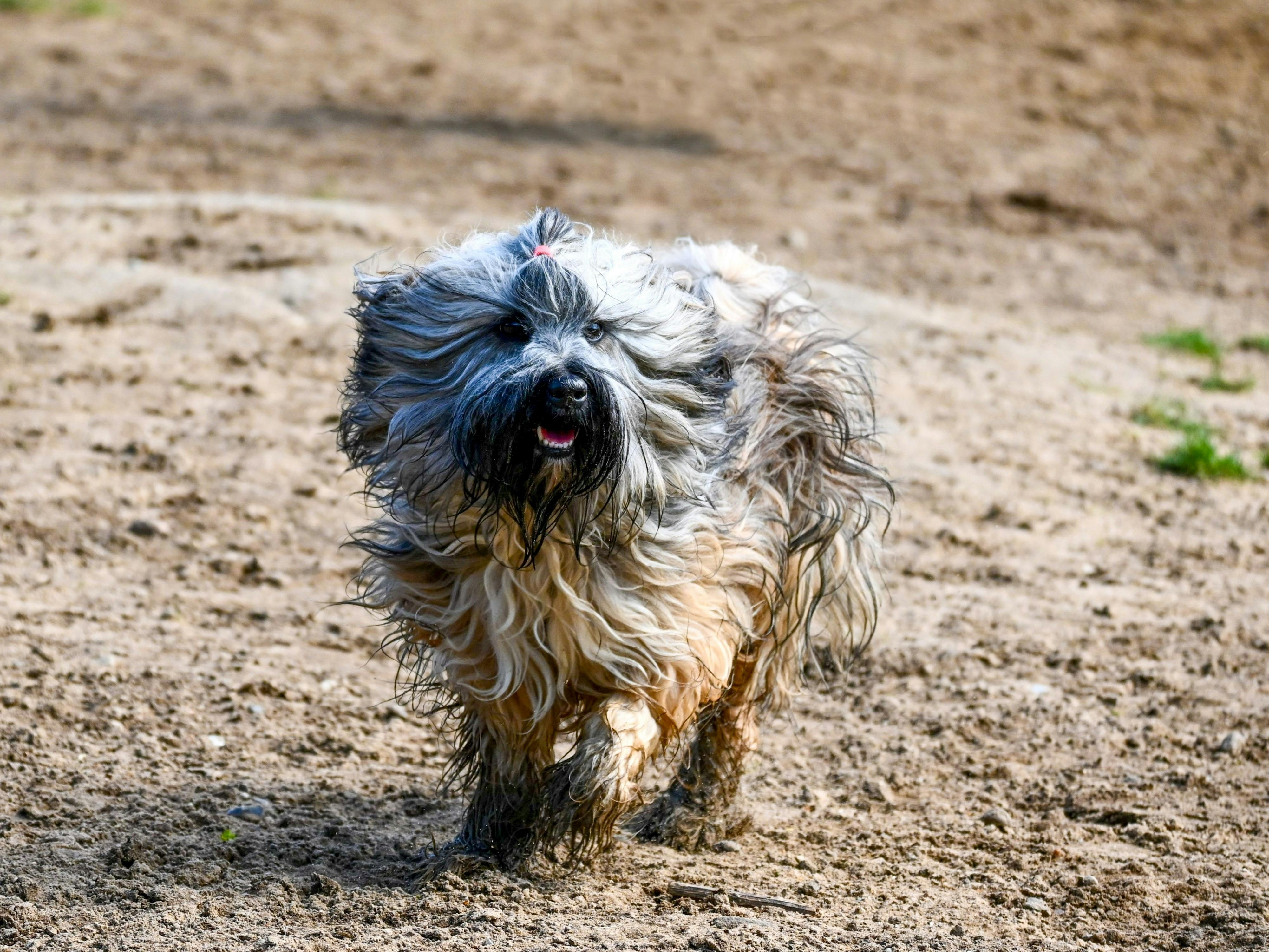
When you think about dogs, their wet noses might be one of the first things that come to mind. But there’s more to that adorable, moist snout than simply looking cute. In fact, the wetness of a dog’s nose serves several important purposes that many pet owners might not even know about. So, let’s dive into the top five reasons why your dog’s wet nose is more than just a charming feature, and explore the fascinating question: why do dogs have wet noses?
1. Enhanced Sense of Smell
Dogs have an incredible sense of smell, and their wet noses help with that. The moisture on a dog’s nose helps to capture scent particles from the air. This ability to absorb scents better enables dogs to pick up on various smells that humans can’t even imagine. In fact, dogs have as many as 300 million olfactory receptors in their noses, compared to a human’s 5 million.
- Wet noses help to:
- Increase scent absorption
- Keep scent particles moist, enhancing detection
- Allow dogs to track scents over longer distances
2. Temperature Regulation
Dogs don’t sweat like humans do. Instead, they cool themselves primarily through panting and, to some extent, through their noses. A wet nose helps to regulate a dog’s body temperature. When a dog licks its nose, it adds moisture which can evaporate and cool the skin. This is especially vital in warmer climates or during the summer months.
- Here’s how it works:
- Evaporation of moisture cools the nose
- Helps maintain overall body temperature
- Prevents overheating during physical activities
3. Health Indicator
A dog’s nose can be a good indicator of its health. While a warm or dry nose does not always mean illness, significant changes in the moisture of your dog’s nose can signal health issues. A consistently dry or cracked nose could indicate dehydration, while excessive discharge might be a sign of allergies or infections.
- Key health indicators include:
- Wet, cool nose – generally healthy
- Dry, cracked nose – possible dehydration or illness
- Discharge from the nose – possible allergy or infection
4. Communication Tool
Dogs also use their noses as a means of communication. When they meet other dogs, they often sniff each other’s noses and behinds as a way of gathering information. This behavior is not just social; it’s essential for understanding each other’s emotional states, health, and even identity.
- Examples of nose communication:
- Sniffing can indicate curiosity or friendliness
- A cold, wet nose can signify a relaxed demeanor
- A dry or warm nose might suggest stress or discomfort
5. Natural Moisture Maintenance
Dogs have a special gland called the “nasal gland” which helps keep their noses moist. This moisture is not just for smell; it helps to maintain the delicate skin inside the nose, keeping it healthy and functioning well. A well-moistened nose can also protect against irritants and allergens in the environment.
- The natural moisture helps to:
- Protect nasal passages from irritants
- Keep the skin healthy and hydrated
- Enhance overall nose function
In summary, your dog’s wet nose is not just another cute feature that makes them more loveable. It’s a crucial part of their anatomy that enhances their sensory abilities, helps with temperature regulation, indicates health, serves as a communication tool, and maintains moisture. So the next time you give your furry friend a pat on the head and notice that adorable wet nose, think about all the fascinating functions it serves. Understanding these aspects of our pets can deepen our bond with them and help us provide better care. Always pay attention to changes in your dog’s nose and overall health. A happy, moist nose is usually a sign of a happy, healthy pup!
Exploring the Connection: Do Wet Noses Indicate a Dog’s Health Status?

When it comes to our beloved furry friends, there’s always questions about their health and behaviors. One common behavior that many dog owners notice is that their noses are often wet. So, you might ask, why do dogs have wet noses? Is there a connection between a dog’s wet nose and its health status? Let’s dive into this fascinating truth and explore the reasons behind this intriguing characteristic.
The Science Behind Wet Noses
Dogs have wet noses due to several reasons, and it’s not just for show. Here are some of the key factors that contribute to this phenomenon:
Moisture Production: Dogs have glands in their noses that produce moisture. This moisture helps to cool them down and also enhances their sense of smell. A wet nose can pick up scent particles better than a dry one.
Temperature Regulation: Just like humans sweat to cool down, dogs use their noses as a way to regulate their body temperature. A wet nose helps dogs feel cooler in warmer weather, while a dry nose can indicate overheating.
Health Indicator: A wet nose is often considered a sign of good health. While it’s not a definitive indicator, a moist nose may suggest that a dog is hydrated and not suffering from any illnesses.
Historical Context and Evolution
Historically, dogs descended from wolves, who also have wet noses. The evolution of this trait likely helped early canines to hunt and survive. Wet noses would have allowed these animals to detect prey more effectively through scent, enhancing their ability to find food. Over time, this trait carried down through generations of domesticated dogs, maintaining its significance in their daily lives.
The Connection Between Wet Noses and Health Status
While a wet nose is generally seen as a sign of a healthy dog, it’s not an absolute rule. Here’s what you should consider:
Normal Variations: Some dogs naturally have drier noses than others, and this can be completely normal for them. Breeds like Bulldogs or Pugs might have a different nose texture or moisture levels.
Illness Indicators: If a dog’s nose suddenly becomes dry and cracked, it might be time to consult a veterinarian. Conditions such as fever, dehydration, or certain skin conditions may be indicated by a dry nose.
Environmental Factors: Weather changes can affect nose moisture. Cold, dry air can lead to drier noses, while humidity can keep them moist.
Common Myths About Dog Noses
There are plenty of myths that surround dog noses. Here are a few that you might have heard:
Myth 1: A wet nose always means the dog is healthy.
- While a wet nose generally indicates hydration, it’s not a foolproof health measure.
Myth 2: Dogs use their noses to sweat.
- Dogs primarily rely on panting to manage body heat, not sweating through their noses.
Myth 3: You can diagnose a dog’s temperature by touching their nose.
- A dog’s nose temperature isn’t an accurate measure of their overall health.
Tips for Monitoring Your Dog’s Nose Health
Keeping an eye on your dog’s nose can help you to identify any potential health issues early. Here are some tips:
Check Regularly: Observe your dog’s nose daily. Notice any changes in moisture or texture.
Watch for Other Symptoms: Dryness often comes with other symptoms like lethargy, lack of appetite, or unusual behaviors. Be aware of these signs.
Consult Your Vet: If you notice any significant changes, especially if accompanied by other symptoms, reach out to a veterinarian for advice.
Fun Facts About Dog Noses
Unique Patterns: Just like human fingerprints, each dog has a unique nose print that can be used for identification.
Scent Power: A dog’s sense of smell is 40 times better than a human’s, thanks in part to their wet noses.
Nose Temperature: A dog’s nose can change temperature based on their surroundings, which helps them detect changes in their environment.
In conclusion, the wetness of a dog’s nose is not just a cute feature but also a functional one that serves multiple purposes. While it can indicate health, it’s essential to consider other factors and symptoms before jumping to conclusions. Understanding your dog’s nose can help you maintain their health and well-being. So the next time you give your pup a pat, take a moment to appreciate their fascinating, wet nose!
How a Dog’s Wet Nose Enhances Their Sense of Smell: The Fascinating Facts
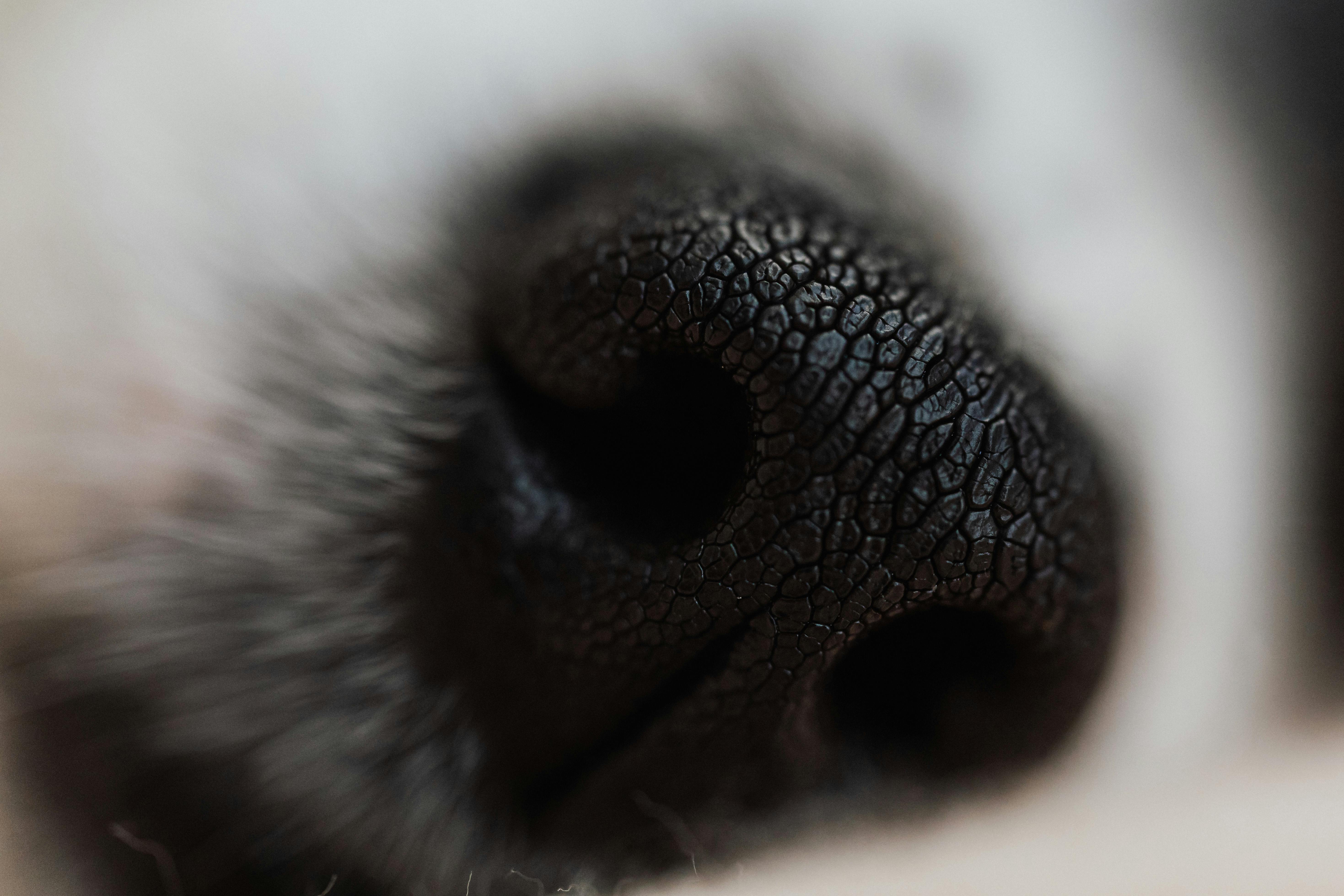
Have you ever notice how dogs seem to sniff everything, and I mean everything? It’s like they got a superpower when it comes to smell. One of the biggest reasons for their amazing olfactory abilities is their wet noses. Yep, that little dampness you feel when your furry friend gives you a nudge is not just cute but plays a crucial role in how they experience the world. In this article, we’ll explore the fascinating facts about why do dogs have wet noses and how it enhances their sense of smell.
The Science Behind a Dog’s Wet Nose
Dogs have a special organ called the Jacobsen’s organ, or vomeronasal organ, which is responsible for detecting pheromones and other chemicals. This organ works in conjunction with their wet noses to create a unique smelling experience. The moisture on their noses helps capture scent particles in the air; it makes it easier for the scent molecules to bond with receptors in the nose.
- Nasal Structure: A dog’s nose is made up of about 300 million olfactory receptors, compared to a human’s 5 million.
- Moisture Advantage: The wetness helps to absorb scent particles.
- Temperature Regulation: Dogs also use their noses to help cool down their bodies.
Why Do Dogs Have Wet Noses?
So, why do dogs have wet noses? There are several reasons that contribute to this fascinating feature:
Enhanced Smell: The moisture on a dog’s nose enhances their ability to pick up scents. It allows them to absorb smell particles more effectively than a dry nose would.
Cooling Mechanism: Dogs do not sweat like humans. They rely on their noses to help regulate temperature. The wetness helps in keeping their body cool during hot weather.
Health Indicator: A wet nose is often a sign of a healthy dog. If a dog’s nose becomes dry or cracked, it might be a sign of illness or dehydration.
Communication: Dogs also use their sense of smell to communicate with other dogs. A wet nose can help them pick up scents left by other dogs, which is essential for social behaviors.
Interesting Facts About Dog Noses
- Different Shapes and Sizes: Dog noses come in various shapes and sizes depending on the breed. For instance, bloodhounds have some of the most sensitive noses in the canine world, while bulldogs might not have the same olfactory prowess.
- Scent Memory: Dogs can remember scents for years. They can recognize their owner’s scent even after a long time apart.
- Scent Discrimination: Dogs can distinguish between smells better than humans can. They can even differentiate between similar smells, making them excellent at tasks like search and rescue.
The Role of a Dog’s Wet Nose in Everyday Life
Dogs utilize their wet noses in multiple aspects of life. Here are some practical examples of how their sense of smell plays a crucial role in their daily activities:
- Tracking: Police and rescue dogs use their noses to track down missing persons. Their ability to follow a scent trail is unmatched.
- Detection: Dogs are trained to detect drugs, explosives, and even certain medical conditions such as diabetes or cancer.
- Hunting: For hunting breeds, their sense of smell is essential for locating game.
Fun Comparisons: Dogs vs. Humans
To really grasp how powerful a dog’s sense of smell is, let’s look at a comparison between dogs and humans in terms of olfactory capability:
- Dogs: 300 million olfactory receptors
- Humans: 5 million olfactory receptors
- Dogs can detect scents in parts per trillion, while humans can only detect in parts per million.
Final Thoughts
So, the next time your dog greets you with that wet nose, remember there’s a lot more going on than just a simple nudge. Their wet noses not only enhance their sense of smell but also provide vital information about their health and surroundings. This little fact about our furry friends shows just how special they are and how much they rely on their sense of smell for interaction and understanding of the world. Whether they’re tracking scents, cooling off, or simply showing affection, their noses play a key role in their lives. Always appreciate that wet nose, it’s not just adorable; it’s essential!
Is Your Dog’s Nose Too Dry? Discover What It Could Mean for Their Health
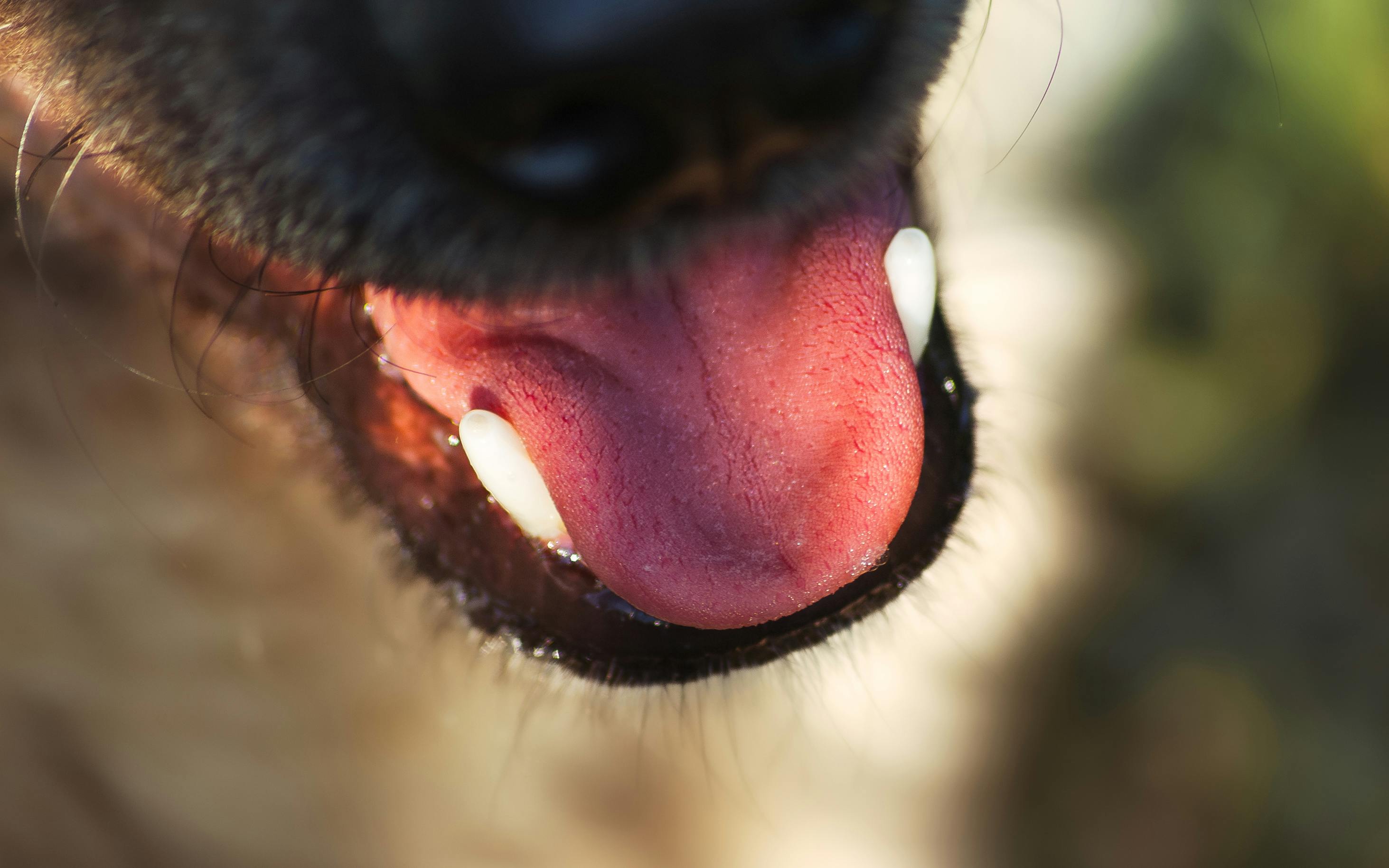
Is your dog’s nose too dry? This question might seem trivial, but it can actually reveal a lot about your furry friend’s overall health. Many pet owners wonder, “why do dogs have wet noses?” and this curiosity leads us to understand their unique biology. A dog’s nose isn’t just a cute feature; it plays an important role in their health and behavior. Let’s dive into what a dry nose might mean and uncover the fascinating truth behind those wet noses.
What Does a Dry Nose Indicate?
When you notice your dog’s nose feeling dry, it could mean several things. It’s important to consider context, as a dry nose doesn’t automatically signal a health issue. Here are some common reasons for a dry nose:
- Dehydration: If a dog isn’t drinking enough water, this can lead to a dry nose.
- Environmental Factors: Hot weather, low humidity, or excessive sun exposure can dry out your dog’s nose.
- Allergies: Dogs can be allergic to various substances, and this may cause nasal dryness.
- Illness: In some cases, a dry nose could indicate a fever, infections, or other health problems.
Wet Noses: A Natural Trait
So, why do dogs have wet noses? Wet noses are an essential aspect of their anatomy. Here’s how they benefit from it:
- Enhanced Scent Detection: A wet nose helps capture scent particles better than a dry one, allowing dogs to smell things more acutely.
- Temperature Regulation: Dogs sweat only through their paw pads, so a wet nose helps them cool down.
- Health Indicator: A moist nose often signifies that a dog is healthy and hydrated.
How to Tell if Your Dog is Healthy
A healthy dog usually has a moist, cool nose. You can check your dog’s nose easily, but it’s not the only thing you should pay attention to. Here are some signs of a healthy pup:
- Shiny Coat: A healthy dog has a vibrant coat with no bald spots or excessive shedding.
- Energetic Behavior: Dogs that are active and playful are generally in good health.
- Normal Eating & Drinking Habits: Changes in appetite or water intake can be a red flag.
- Regular Bathroom Habits: Normal urination and defecation patterns are essential indicators of health.
What If Your Dog’s Nose is Too Dry?
If your dog’s nose is persistently dry, it may be time to take action. Here are some useful tips:
- Hydration: Ensure your dog has access to fresh, clean water at all times.
- Humidifiers: If you live in a dry climate, consider using a humidifier in your home.
- Regular Vet Check-ups: Regular visits to the vet can help identify underlying health issues.
When to Consult a Veterinarian
While many cases of a dry nose are harmless, there are situations when you should consult a veterinarian. Look out for these signs:
- Cracking or Bleeding: If the nose appears cracked or starts bleeding, it’s crucial to seek veterinary care.
- Other Symptoms: If your dog shows signs of lethargy, loss of appetite, or vomiting, it’s best to get them checked.
- Persistent Dryness: If the dryness doesn’t improve or gets worse, it’s worth a visit to the vet.
Common Myths About Dog Noses
There are a lot of myths circulating about dog noses. Let’s debunk a few:
- Myth 1: A warm nose means a dog is sick. This isn’t always true, as nose temperature can vary.
- Myth 2: Dogs can’t get sunburned on their noses. This is false; they can suffer from sunburn just like humans.
- Myth 3: All dry noses indicate sickness. A dog can have a dry nose for reasons unrelated to their health.
Fun Facts About Dog Noses
- Dogs have about 220 million smell receptors, while humans have about 5 million.
- The texture and pattern of a dog’s nose are as unique as human fingerprints.
- Dogs can detect certain diseases, including cancer and diabetes, through their sense of smell.
In summary, understanding why dogs have wet noses and what a dry nose might mean can help you be a better pet owner. Pay attention to your dog’s overall health and behavior, as it can provide vital clues about their well-being. If you’re ever in doubt, don’t hesitate to reach out to a veterinarian for guidance and support. Your dog will appreciate the care and attention you give to their health!
The Surprising Benefits of a Wet Nose: What Every Dog Owner Should Know
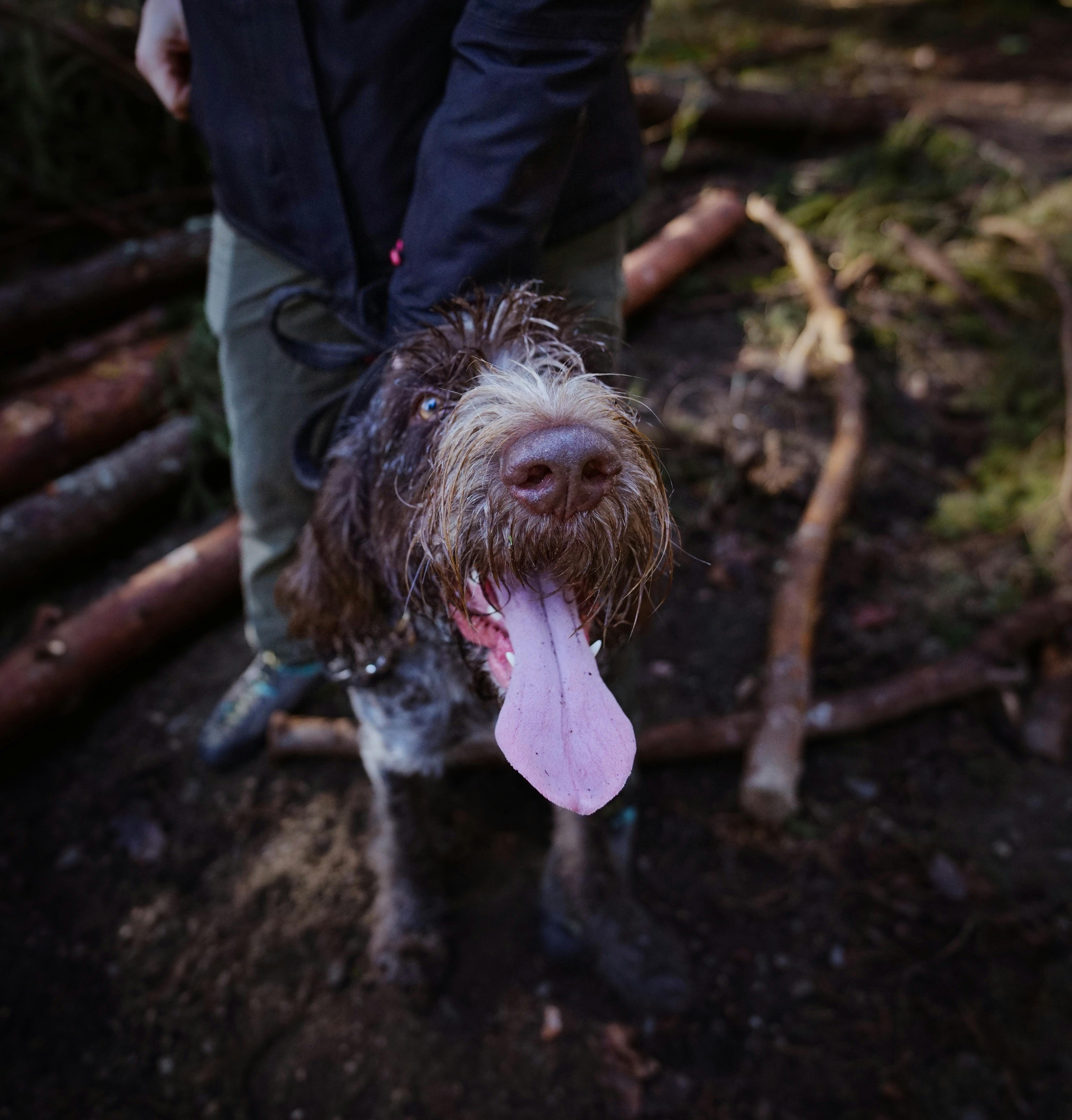
Have you ever wondered why dogs have wet noses? If you’re a dog owner, you’ve probably encountered this curious fact about your furry friend. Not only is it an adorable characteristic, but it also serves several practical purposes that can surprise many pet owners. This article will explore the fascinating truth about wet noses and what it means for your dog’s health and behavior.
The Science Behind Wet Noses
Dogs’ noses are generally moist for several reasons. The surface of a dog’s nose contains mucous membranes that help in scent detection. When they sniff, their noses absorb odors and moisture, which enhances their sense of smell. This is because dogs have an extraordinary sense of smell — estimated to be between 10,000 to 100,000 times more sensitive than humans.
- The wetness helps trap scent particles, making it easier for dogs to identify different smells.
- A wet nose can regulate temperature, acting like a natural air conditioner for dogs.
- It helps keep their noses cool, especially during hot weather.
Why Do Dogs Have Wet Noses?
The moisture on a dog’s nose is not just for show. Dogs lick their noses frequently, which keeps them moist. But why is this important? Here’s a list of reasons:
- Enhanced Smell: As mentioned, the wetness helps in absorbing scent particles.
- Thermoregulation: A wet nose helps maintain body temperature.
- Health Indicator: A healthy dog typically has a wet nose. If it’s dry or cracked, it could indicate dehydration or illness.
- Communication: Dogs use their noses to explore their environment and communicate with other dogs.
Historical Context of Dogs’ Noses
Throughout history, dogs have been bred for various purposes, many of which involve their incredible sense of smell. From hunting dogs to search-and-rescue canines, the wet nose has played a vital role in their functionality. Ancient civilizations recognized dogs’ abilities, and they were often employed as scent trackers.
- Hunting: Dogs were used in hunting due to their ability to track prey using their noses.
- Search and Rescue: In more modern times, dogs have been trained to locate lost persons, drugs, or even explosives.
- Service Animals: Dogs assist humans with disabilities, and their wet noses help them in scent detection tasks.
Fun Facts About Dogs’ Noses
It’s intriguing to think about how much there is to learn about our canine companions. Here are some fun facts that you might not know:
- The color of a dog’s nose can vary widely among breeds, ranging from black to pink to liver-colored.
- A dog’s nose print is unique, similar to a human fingerprint.
- Dogs can detect diseases like cancer and diabetes through their keen sense of smell.
- The wetness of their noses can vary depending on the time of day and activity level.
Practical Implications for Dog Owners
Understanding why dogs have wet noses can help dog owners monitor their pets’ health better. Here are a few practical tips:
- Regular Check-ups: Keep an eye on your dog’s nose. If it becomes excessively dry or cracked, consult a veterinarian.
- Stay Hydrated: Ensure your dog has access to plenty of fresh water, especially in hot weather to maintain moisture levels.
- Observe Behavior: Changes in nose wetness could coincide with other behavioral changes, like lethargy or refusal to eat. This might indicate a need for veterinary attention.
Conclusion
In summary, the reason behind why do dogs have wet noses is not just a quirky trait but an essential aspect of their biology and health. By understanding this unique characteristic, dog owners can ensure their pets stay healthy and happy. So, next time you get that wet-nosed kiss from your furry friend, remember — it’s not just cute; it’s also a sign that your dog is doing well! Being a responsible dog owner means being attentive to these small details, which can make a big difference in your pet’s quality of life.
Wet Noses and Dog Behavior: Understanding Your Furry Friend’s Emotions

Have you ever wonder why your dog’s nose is always wet? It’s not just a random thing; it’s actually pretty fascinating. Dogs have wet noses for a bunch of reasons, and understanding this can give us insight into their behavior and emotions. So, let’s dive into the world of our furry friends and discover the truth about those charming, damp noses.
The Science Behind Wet Noses
A dog’s nose is covered with a thin layer of mucous, which helps to absorb scent chemicals. This is one of the main reasons why dog noses are wet. When a dog sniffs something, the moisture on their nose traps scent particles, making it easier for them to interpret smells. A wet nose is basically a dog’s superpower for smelling!
- Dogs have around 220 million scent receptors in their noses, compared to about 5 million in humans.
- The moisture on their noses helps them to detect scents better, which is how they communicate with each other and understand their environment.
- A dog’s sense of smell is so strong that they can even detect certain diseases in humans, such as cancer or diabetes.
Why Do Dogs Have Wet Noses?
So, let’s break down a few reasons why dogs have wet noses because it’s not just for show.
Temperature Regulation: Dogs don’t sweat like humans do. Instead, they regulate their body temperature through their noses and panting. A wet nose can help cool them down when it’s hot outside.
Health Indicator: A healthy dog usually has a wet and cool nose. If a dog’s nose is dry or excessively warm, it may indicate health issues, such as fever or dehydration.
Communication Tool: Dogs communicate emotions through their noses. When they are excited or happy, their noses tend to be more moist. Conversely, a dry nose can sometimes indicate anxiety or stress.
Historical Context of Dogs and Their Noses
Dogs have been companions to humans for thousands of years. Originally domesticated from wolves, they have evolved to understand human emotions and behaviors. The moisture on their noses isn’t just a trait; it’s a part of how they’ve adapted to live alongside us. Ancient civilizations recognized the incredible sense of smell dogs possessed, using them in hunting and as helpers in various tasks.
Wet Noses and Dog Behavior
Understanding the connection between your dog’s wet nose and their behavior can really help you bond with them better. Here’s what you should look for:
Curiosity: When your dog’s nose is wet, they’re usually curious about their surroundings. They sniff more when they’re exploring new places or meeting new friends.
Comfort and Happiness: A wet nose is often a sign that your dog is comfortable and happy. If they nuzzle you with their nose, it’s their way of saying they love you!
Anxiety or Stress: If you notice your dog’s nose is dry and they’re acting anxious, it might be a sign they need some comfort or reassurance.
Fun Facts About Dog Noses
Here are some interesting tidbits about dog noses that might surprise you:
- Dogs can recognize their owner’s scent even after a long time apart.
- The shape of a dog’s nose can determine their ability to smell. Breeds like Bloodhounds have longer noses that are better for tracking scents.
- Dogs have unique nose prints, much like human fingerprints. This means each dog has a one-of-a-kind nose!
How to Care for Your Dog’s Nose
Keeping your dog’s nose healthy is important. Here are some tips:
- Hydration: Make sure your dog is drinking enough water, especially in hot weather.
- Avoid Irritants: Keep your dog away from harsh chemicals or allergens that can irritate their nose.
- Regular Check-ups: Visit the veterinarian regularly to ensure your dog is healthy and their nose is in good condition.
Understanding your furry friend’s emotions through their wet noses can strengthen your bond with them. It’s amazing how something so simple can tell you so much about how they feel and what they need. So next time you give your dog a pat, notice that wet nose and appreciate the little things that make them special.
How to Keep Your Dog’s Nose Healthy: Tips for Pet Owners
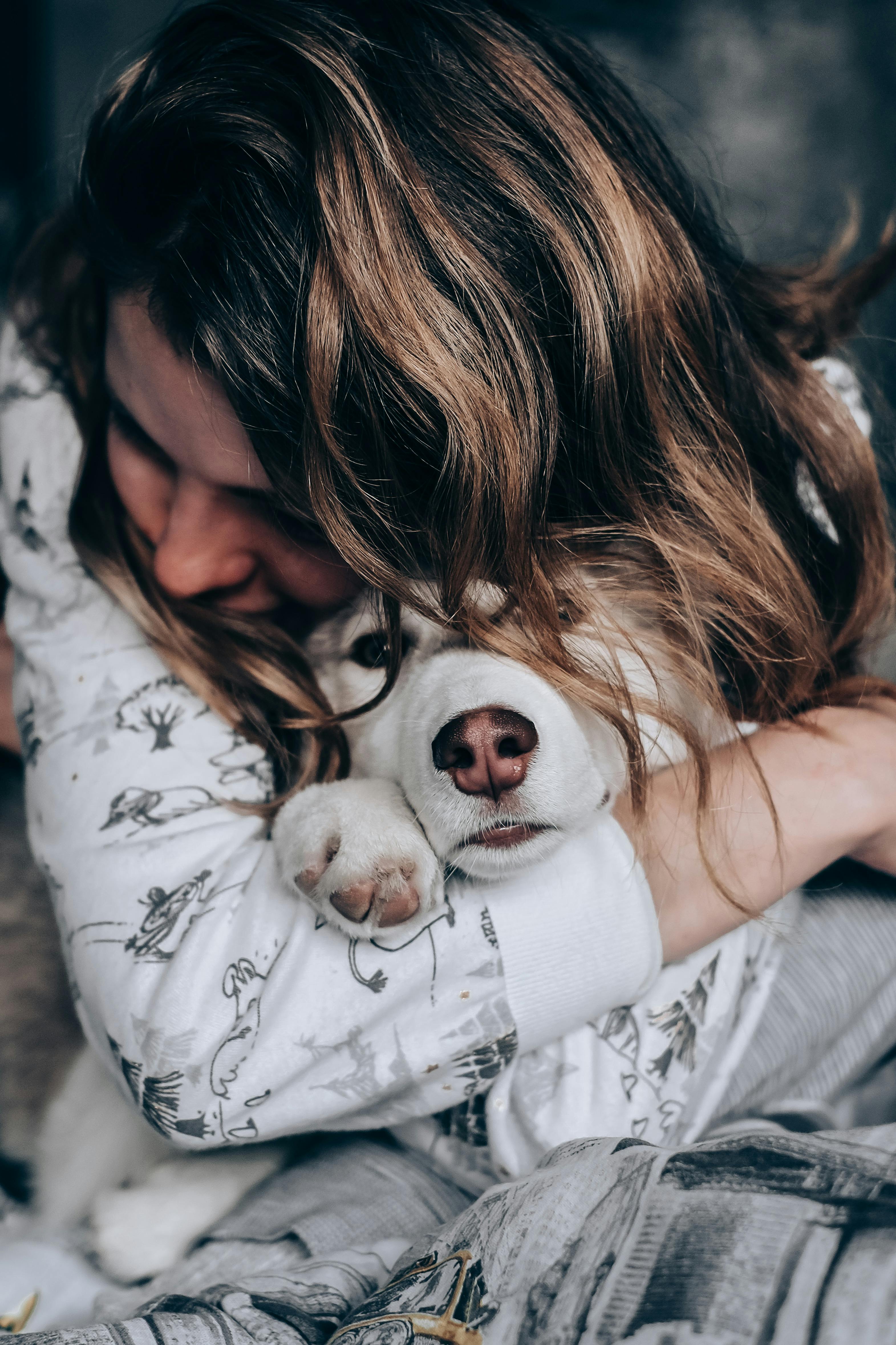
Keeping your dog healthy is a big responsibility, and one area that often gets overlooked is their nose. Many pet owners may not realize how important it is to maintain a healthy nose for their dogs. Not to mention, the curious fact about why dogs have wet noses is something that many people don’t know. Let’s dive into how to keep your dog’s nose healthy and explore the fascinating truth behind those wet noses!
Why Do Dogs Have Wet Noses?
First off, have you ever wondered why dogs have wet noses? There are several reasons for this that are pretty interesting.
- Enhanced Sense of Smell: Dogs have an incredible sense of smell, and their wet noses help to absorb scent chemicals from the air. The moisture helps trap scent particles, making it easier for dogs to detect smells.
- Temperature Regulation: Just like humans sweat to cool down, dogs use their noses to help regulate their body temperature. A wet nose can help them stay cool on hot days.
- Health Indicator: A wet dog nose is often seen as a sign of good health. However, it’s not the only factor, so don’t rely on it solely to determine if your dog is sick or not.
How to Keep Your Dog’s Nose Healthy
Keeping your dog’s nose in tip-top shape is not as hard as it might sound. Here are some tips for pet owners:
- Regular Cleaning: Just like any other part of your dog’s body, the nose can gather dirt and debris. Use a damp cloth to gently wipe your dog’s nose regularly. Be careful not to irritate the skin.
- Hydration: Make sure your dog is drinking enough water. A well-hydrated dog is likely to have a healthy, moist nose.
- Watch for Cracking: If you notice your dog’s nose is dry or cracked, it could be a sign of dehydration or other health issues. You might want to consult your vet if this happens regularly.
- Avoid Allergens: Like humans, dogs can be sensitive to allergens. If your dog’s nose is frequently dry or irritated, try to identify and eliminate potential allergens in their environment.
- Regular Vet Check-ups: Routine veterinary visits can help catch any issues early on. Don’t skip those appointments!
Common Nose Problems in Dogs
Sometimes, even with the best care, dogs can face nose issues. Here are some common problems you might encounter:
- Dry Nose: A dry nose can indicate dehydration or illness. If it persists, consult your vet.
- Nosebleeds: These can occur for various reasons, including injury or a health condition. If your dog has a nosebleed, it’s best to seek professional advice.
- Nasal Discharge: If your dog has excessive discharge from their nose, it may be due to allergies, infections, or other health problems.
Interesting Facts About Dogs’ Noses
Did you know that dogs’ noses have unique patterns? Just like human fingerprints, each dog has a unique nose print. Here are some more fun facts:
- Scent Receptors: Dogs have up to 300 million scent receptors in their noses, compared to about 5 million in humans. That’s huge!
- Temperature Sensitivity: Dogs can detect temperature changes with their noses, helping them sense heat sources.
- Nose Size and Function: Interestingly, the size of a dog’s nose can affect its smelling ability. Breeds with longer noses tend to have better olfactory senses.
Tips for Recognizing Nose Health
It’s also important to keep an eye on your dog’s nose health. Here are some signs to look out for:
- Color Changes: If your dog’s nose changes color, it might be a sign of a health issue.
- Texture Changes: A persistent change in texture can indicate a problem.
- Odor: A foul smell could indicate an infection or other health concerns.
Maintaining your dog’s nose is just one aspect of pet care, but it’s an important one. A healthy nose can contribute to your dog’s overall well-being and happiness. Remember that while a wet nose is often a good sign, it’s not the only indicator of your dog’s health. Keeping an eye on their habits, behavior, and condition can provide a clearer picture of their health status. So, take a moment to appreciate your furry friend’s nose and ensure it stays healthy and happy!
Debunking Myths: Do All Dogs Have Wet Noses? The Truth Revealed!
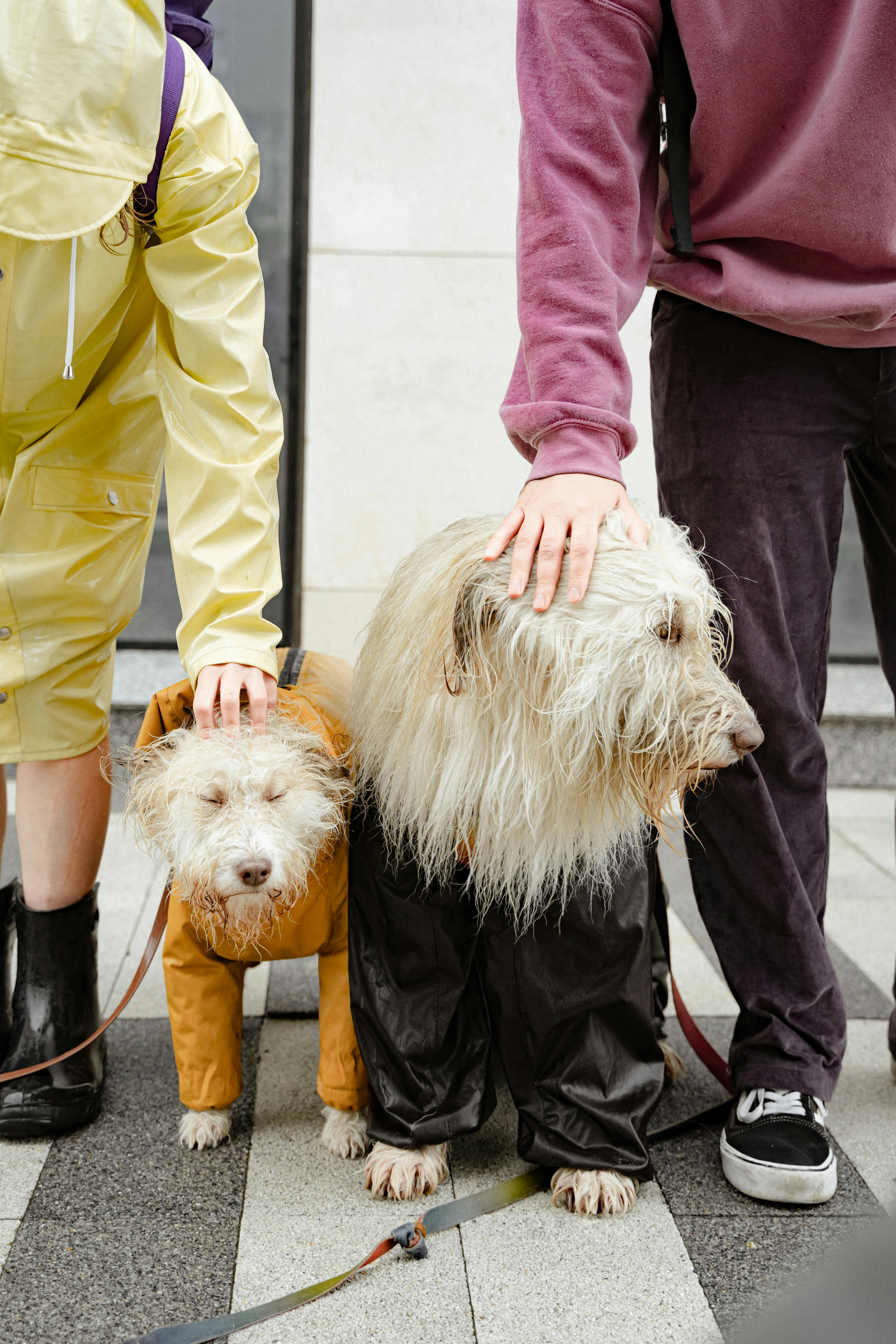
Dogs are often thought of as man’s best friend, and one of the many things that sets them apart from other pets is their wet noses. But why is that? Do all dogs have wet noses? Many people have heard the saying, “A dog’s nose is wet because it’s healthy,” but is there any truth to that? Let’s dive deep into the fascinating world of canine noses and debunk some common myths surrounding this topic.
The Science Behind Wet Noses
First off, it’s important to understand why dogs have wet noses. The moisture found on a dog’s nose plays a crucial role in their sense of smell, which is significantly more advanced than that of humans. The wetness helps to capture scent particles, enhancing their ability to detect different odors. Here’s some scientific breakdown:
- Enhanced Olfactory Function: Wet noses help absorb scent particles better, allowing dogs to smell things that are even more faint.
- Temperature Regulation: Dogs don’t sweat like humans do. Their noses help them to cool down.
- Health Indicator: A wet nose doesn’t automatically mean a dog is healthy, but changes in moisture level can indicate health issues.
Myth vs. Reality
Now let’s tackle some common myths about dog noses:
Myth 1: All dogs have wet noses.
- Reality: Not all dogs have wet noses all the time. Factors like breed, environment, and health can affect the moisture level of a dog’s nose.
Myth 2: A cold nose means a dog is sick.
- Reality: A dog can have a cold or warm nose regardless of their health status. Temperature can vary due to activity levels or ambient temperature.
Myth 3: Dogs lick their noses to keep them wet.
- Reality: While dogs do lick their noses, it’s not the primary reason their noses are wet. The wetness is largely due to natural secretion of mucus.
Historical Context
Historically, the belief about a dog’s wet nose being a sign of health dates back centuries. Ancient texts mention that dogs were considered more trustworthy and healthy when they had moist noses. This perception has permeated through time, creating a myth that persists even today.
Reasons for Variability in Nose Wetness
Several factors can influence how wet a dog’s nose gets:
Environmental Conditions:
- Humidity levels can affect how wet or dry a nose feels.
- Cold weather can lead to drier noses in some dogs.
Health Issues:
- Dehydration, fever, or other health problems can cause changes in nose moisture.
Breed Differences:
- Some breeds naturally have drier noses. For instance, Bulldogs and Boxers might not have the same level of moisture as other breeds.
Practical Tips for Dog Owners
As a dog owner, it’s important to observe your furry friend’s nose and overall health. Here are some practical tips to keep in mind:
- Regular Check-Ups: Take your dog for regular vet visits to monitor health and any changes in nose moisture.
- Hydration: Ensure that your dog always has access to fresh water to stay hydrated.
- Observe Behavior: If your dog’s nose suddenly becomes excessively dry or warm, it could be a sign of illness.
Quick Facts About Dog Noses
- Dogs have approximately 300 million scent receptors in their noses, compared to humans who only have about 6 million.
- The wetness of a dog’s nose is often due to a combination of mucus, saliva, and the ambient environment.
- Dogs use their sense of smell for various activities, including hunting, tracking, and even detecting human emotions.
So, do all dogs have wet noses? Not necessarily. The truth is more nuanced than a simple yes or no. The condition of a dog’s nose can vary for many reasons, and it’s important to look beyond just the moisture level to assess a dog’s overall health. Understanding these facts can help you better care for your four-legged friend, ensuring they remain healthy and happy. By debunking these myths, we can appreciate the unique characteristics of our canine companions even more.
Fun Facts About Dog Noses: Why Wet Noses Are Essential for Canine Communication
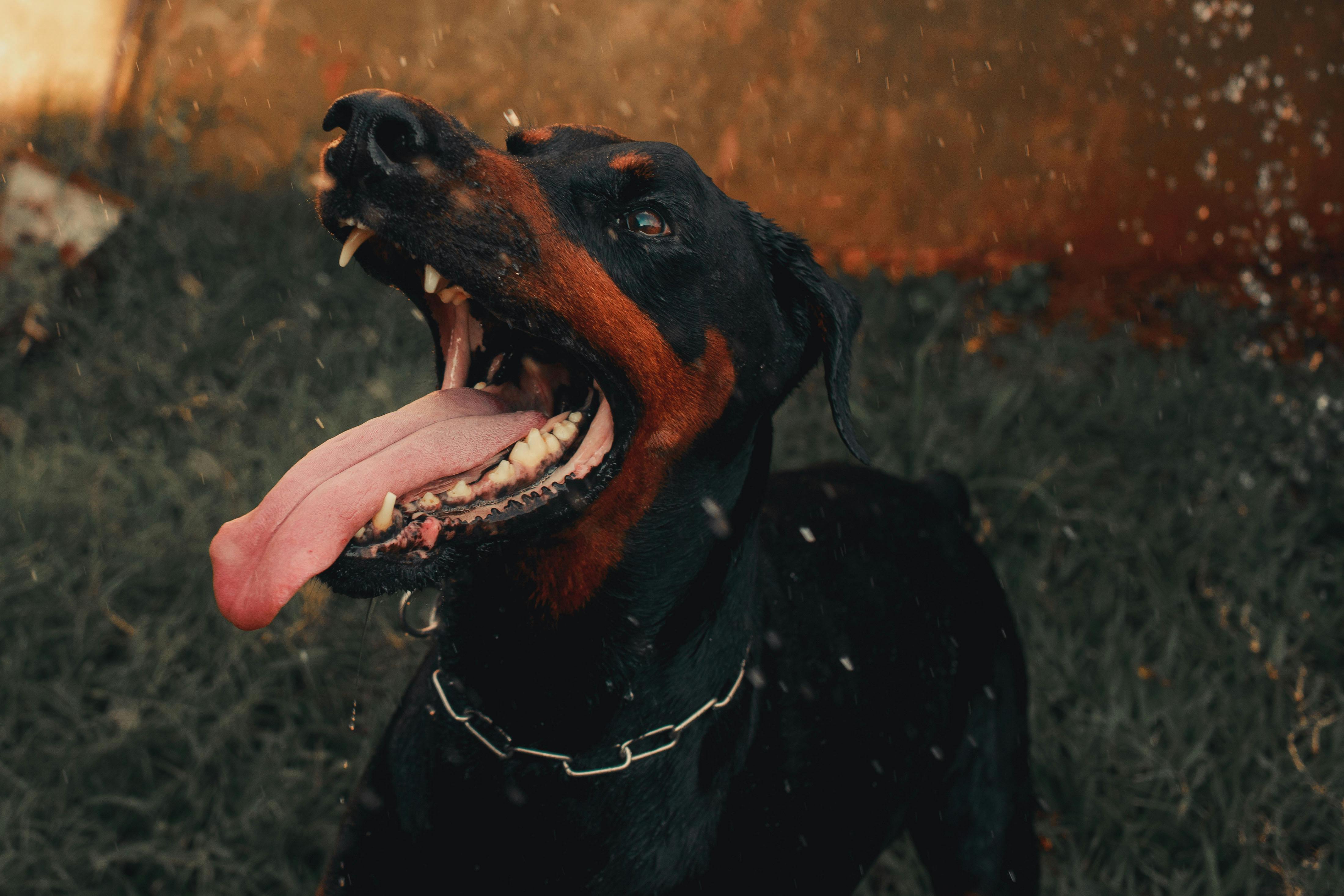
Dog noses are one of the most interesting parts of our furry friends, and many folks don’t realize how important wet noses are in canine communication. Ever wonder why do dogs have wet noses? Well, it’s not just for show! There’s a fascinating truth behind it, and it’s worth exploring.
The Science Behind Wet Noses
First off, let’s talk about why dog noses are wet. The moisture on a dog’s nose helps them smell better. Dogs have a sense of smell that is anywhere from 10,000 to 100,000 times more sensitive than humans. That’s right! Their noses are like super-powered scent detectors. The wetness aids in trapping scent particles, which makes it easier for dogs to pick up different smells.
- Scent Detection: The wetness on their noses helps absorb scent molecules.
- Temperature Regulation: A wet nose also cools down dogs. It’s like their natural air conditioning system.
- Health Indicator: A dog’s nose can indicate health. If it’s too dry or hot, it might signify something’s wrong.
Why Do Dogs Have Wet Noses?
Well, let’s break it down even more. Dogs have evolved over thousands of years, and their wet noses are just one of the many traits that have developed. Here’s a list of reasons:
- Enhanced Smell: The moisture makes it easier to detect scents in the air.
- Communication: Dogs use their noses to communicate with other dogs and even humans. A wet nose can mean they are excited or need attention.
- Exploration: Dogs explore the world through their noses. A wet nose means they’ve been sniffing around, gathering information about their environment.
Historical Context
Dogs have been companions to humans for thousands of years. Their noses played a major role in their domestication. Ancient humans noticed that dogs could track scents and find food, so they became valuable hunting partners. As they evolved through breeding, their sense of smell became even sharper, enhancing their ability to communicate and bond with humans.
Fun Facts About Dog Noses
- Dogs have around 220 million scent receptors in their noses, compared to humans, who have about 5 million.
- The unique patterns on a dog’s nose are like human fingerprints. Each dog has a distinct nose print!
- A wet nose can help detect certain diseases in humans. Dogs are trained to sniff out cancer and other illnesses.
- Different breeds have different nose shapes, which can also affect their sense of smell. For example, bloodhounds have the best sense of smell among dog breeds.
Comparison: Wet vs. Dry Noses
It’s also interesting to compare wet and dry noses. Here’s what you might want to know:
| Wet Nose | Dry Nose |
|---|---|
| Better at detecting scents | May indicate dehydration or illness |
| Common in healthy dogs | Can be normal but could signal health issues |
| Helps with temperature regulation | Less effective in odor absorption |
Practical Examples of Nose Use
Dogs use their noses in various practical ways. Here’s a list of some common examples:
- Tracking: Police dogs use their noses to track down suspects or find missing persons.
- Detection: Service dogs can be trained to detect allergens or medical conditions like diabetes.
- Hunting: Sporting breeds are often used in hunting, thanks to their incredible sense of smell.
- Search and Rescue: Dogs are vital in search and rescue missions, locating people buried under rubble or lost in the wilderness.
The importance of a dog’s nose goes far beyond just looking cute. Understanding why do dogs have wet noses can help owners appreciate their furry friends even more. The wetness is crucial for their health, communication, and overall well-being.
In summary, dogs’ wet noses are fundamental to their ability to interact with the world. From sniffing out new scents to regulating their body temperature, a wet nose is a telltale sign of a healthy dog. So next time you see your pup with that adorable, shiny nose, remember — it’s more than just a cute feature; it’s an essential tool for their survival and communication.
Conclusion
In conclusion, the wet noses of dogs serve several important functions that contribute to their overall health and behavior. The moisture on their noses enhances their sense of smell, allowing them to detect scents more effectively. Additionally, it plays a vital role in thermoregulation, helping to cool their bodies. A wet nose can also indicate a dog’s hydration level and overall well-being. While it’s a common belief that a warm, dry nose may signal illness, it’s essential to consider other signs of health and consult a veterinarian for any concerns. Understanding why dogs have wet noses not only deepens our appreciation for these beloved companions but also emphasizes the importance of regular veterinary check-ups. So, the next time you give your furry friend a pat, take a moment to marvel at their unique biology and ensure they’re healthy and happy!

